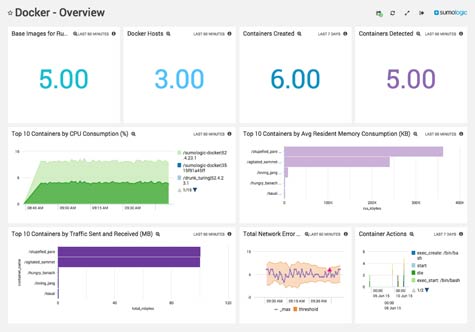As the number of microservices based on containers like Docker proliferates across the enterprise, IT operations teams will need more granular insight into the IT infrastructure forces affecting the performance of IT services.
To provide that visibility, at the DockerCon 2015 conference, Sumo Logic announced that it has extended the reach of its analytics software for IT operations to incorporate microservices based on Docker containers.
Sahir Azam, director of product management for Sumo Logic, says that the company’s namesake service is based on machine learning software. It can now isolate objects in a way that enables IT organizations to determine how changes to the overall IT environment affect performance, security and compliance.
The end goal, says Azam, is to give IT organizations access to the analytics they need to manage IT environments where container-based microservices are not only provisioned in minutes, but also may disappear in an instant. To that end, Azam says it’s clear that IT organizations will need an agentless approach to tracking what is becoming a highly dynamic IT environment.
Available via the Amazon Web Services cloud or on premise, Azam says Sumo Logic is designed to provide a highly elastic analytics framework that mirrors how IT organizations are actually embracing microservices.
In general, IT environments have already reached a level of complexity that most human beings can’t track on a daily basis. Microservices based on containers only increase that complexity. As such, it’s now only a matter of time before organizations find themselves depending more on machine learning software and advanced analytics to manage IT environments that may no longer look the same one day to the next.




